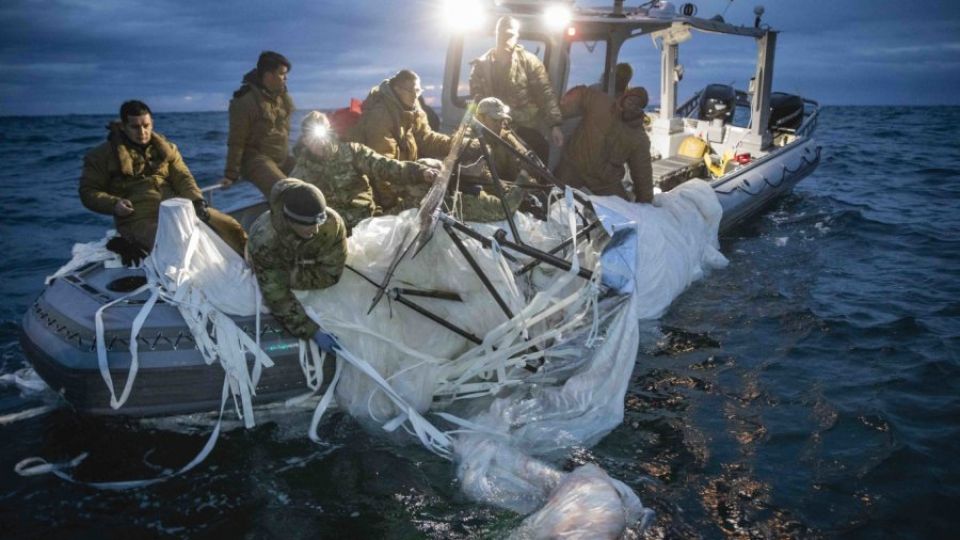February 16, 2023
JAKARTA – Indonesia has recently given countries in the Indo-Pacific a stern reminder that the geopolitical rivalry between the United States and China could “very well escalate into open conflict” if not properly managed, underpinning broader concerns that things could turn from bad to worse.
Tensions between Washington and Beijing have been high after a recent balloon incident quashed plans for the leaders of the two superpowers to finally meet in person after a period of cooling ties under pandemic duress.
Analysts are now questioning the state of Southeast Asia’s security and calling on Indonesia to strengthen relevant ASEAN-led mechanisms, lest the bloc risk an existential threat go unchecked.
Recent years have seen different approaches by Indo-Pacific powers in grappling with China’s rise as a superpower and regional benefactor. Some nations opt for diplomatic strategies to balance Beijing’s influence, while others choose to revive exclusive groups such as the Quadrilateral Security Dialogue, also known as the Quad.
The Quad sees the US grouped together with Japan, India and Australia, all of whom have competing interests with China in one form or another.
Australia is also one of three nations comprising AUKUS, another mini-lateral group that seeks to provide Canberra with nuclear-powered submarine capabilities. It has drawn concerns about compliance with existing international law.
Jakarta asserted the need to keep the region free of nuclear weapons and maintain strict adherence to the Nuclear Proliferation Treaty (NPT) during a meeting of defense and foreign ministers in Australia last week.
“It is hoped that tensions can simmer down through inclusive work,” Foreign Minister Retno LP Marsudi told her Australian counterparts in Canberra on Thursday.
“If not managed well, the rivalry [between the US and China] could very well escalate into an open conflict.”
The minister’s concerns were by no means isolated.
A recent survey conducted by Singapore-based think tank the ISEAS-Yusof Ishak Institute has revealed that 41.9 percent of the ASEAN population consider the increased military tensions arising from potential flashpoints, such as in the South China Sea, as among the top three challenges jeopardizing the region.
Some 73 percent of people in the study viewed ASEAN as becoming an arena of major power competition and that its member states were at risk of becoming proxies. Meanwhile, almost half of all respondents said that the hostilities have destabilizing effects on the region.
Jakarta has cited work on the Indo-Pacific and its primacy as the site of global power tensions as one of its priorities this year, with minister Retno saying that “concrete and inclusive cooperation” will be encouraged.
Proving centrality
The sheer existence of nuclear weapons in the region, which experts argued during a recent discussion at the House of Representatives’ Commission I overseeing defense, was sufficiently problematic for ASEAN’s stability.
The foreign policy axiom of Mutually Assured Destruction (MAD), which argued that no nuclear-owning countries would inflict offense on one another, would only mean the increased chance of conflict via proxy wars, said Kusnanto Anggoro, international politics and security affairs expert at the Indonesian Defense University, at the House hearing.
While confident that future warfare will likely involve non-nuclear options, Kusnanto warned lawmakers to tread on the safer side as the nuclear factor was too significant to overlook.
“Japan would only need about two years if they wanted nuclear weapons. […] Australia would take 7 years. It is also likely that the tensions between Japan and China in the future may reach levels that we now see between the US and Russia,” argued Kusnanto.
“I am quite certain that the Asia-Pacific region could witness some form of nuclear confrontation by 2045.”
Confrontation aside, the production and transportation of nuclear weapons had health, environmental and economic drawbacks, said Intan Inayatun, a law expert from Airlangga University, urging that the House soon ratify the Treaty of the Prohibition of Nuclear Weapons (TPNW) to ban nuclear weapons entirely.
As leader of ASEAN this year, she suggested that Indonesia strengthen ASEAN-led mechanisms such as the Southeast Asia Nuclear Weapon Free Zone (SEANWFZ) to give the region more solid ground to prosecute nations passing through regional waters with nuclear weapons.
“Indonesia could demand other countries outside the region to respect the SEANWFZ. In 2017, China said that it would ratify the treaty, but they never did,” she recalled.
The nuclear aspect could also be baked into the implementation of the ASEAN Outlook on the Indo-Pacific (AOIP), Intan said, arguing that Jakarta ought to take “a firm stance” on the issue globally.
Since assuming the ASEAN chairmanship, Indonesia has on various occasions emphasized that it would strengthen the assembly’s “agility” and mechanisms, like the East Asia Forum (EAS) and the SEANWFZ, in response to current challenges such as growing tensions in the Taiwan Strait.
The commitment to ensuring ASEAN’s relevance came as confidence in the group was in decline, with the same ISEAS survey indicating that 82.6 percent of respondents agreed with the sentiment that ASEAN was slow, ineffective and incapable of dealing with recent developments. (tjs)


